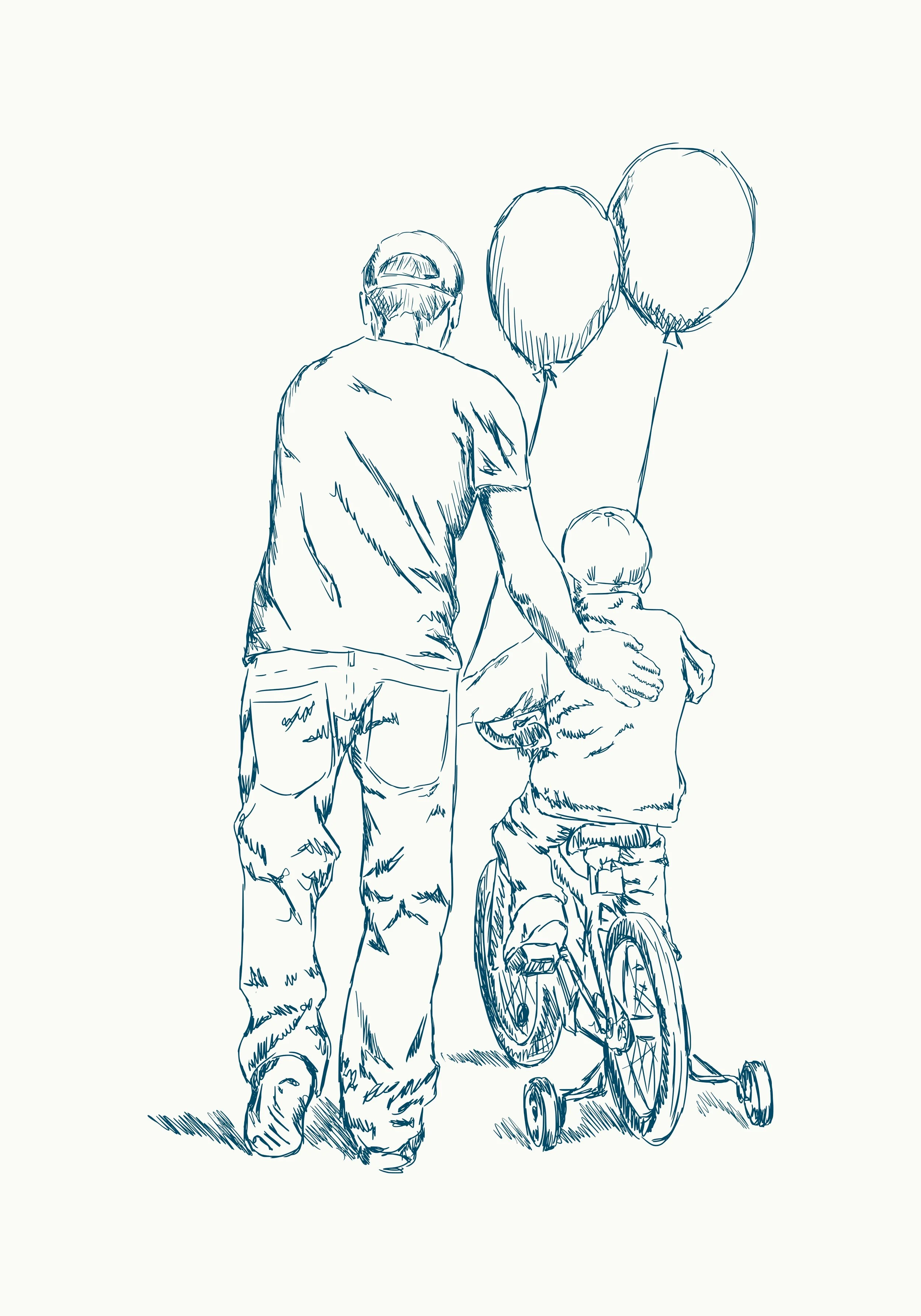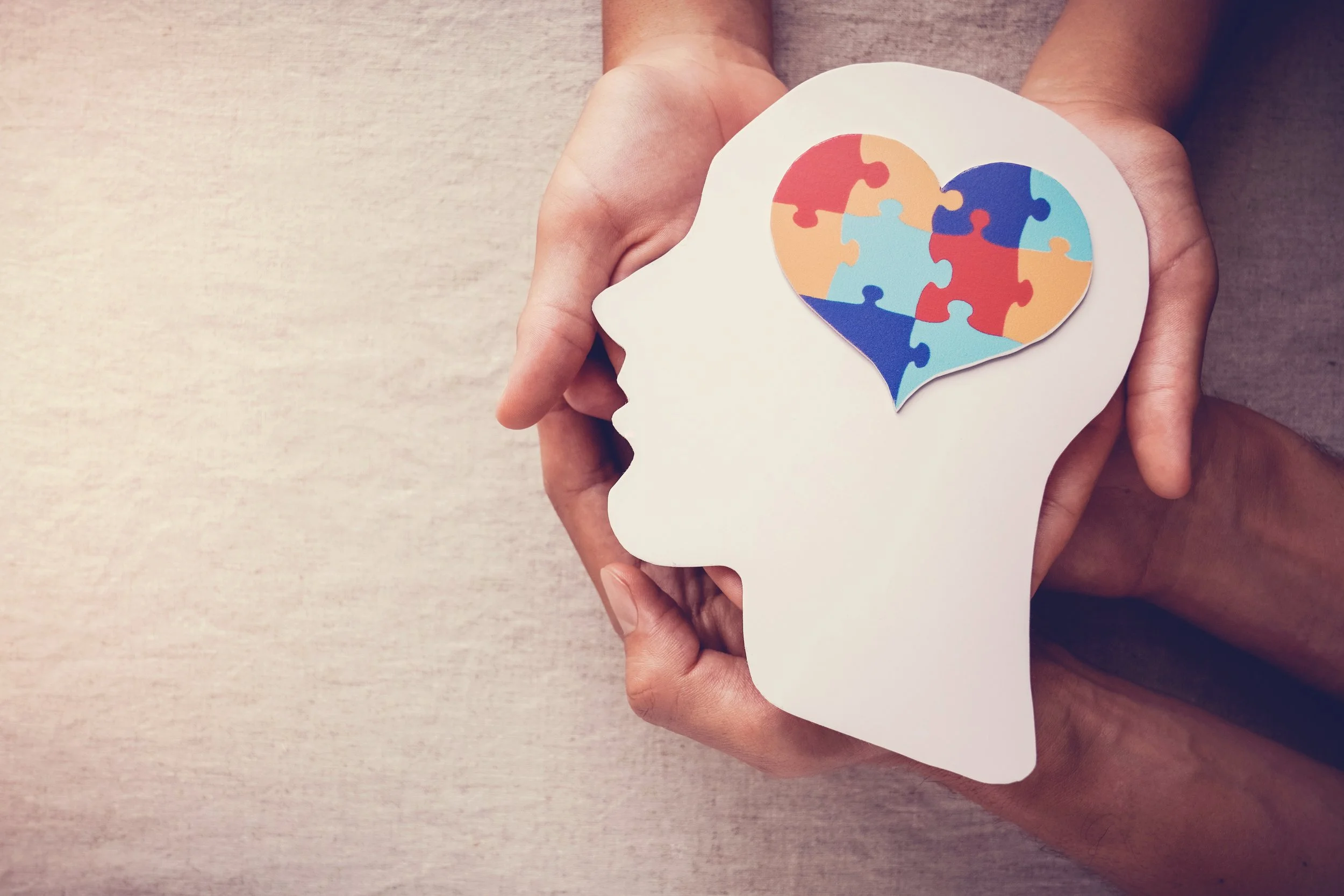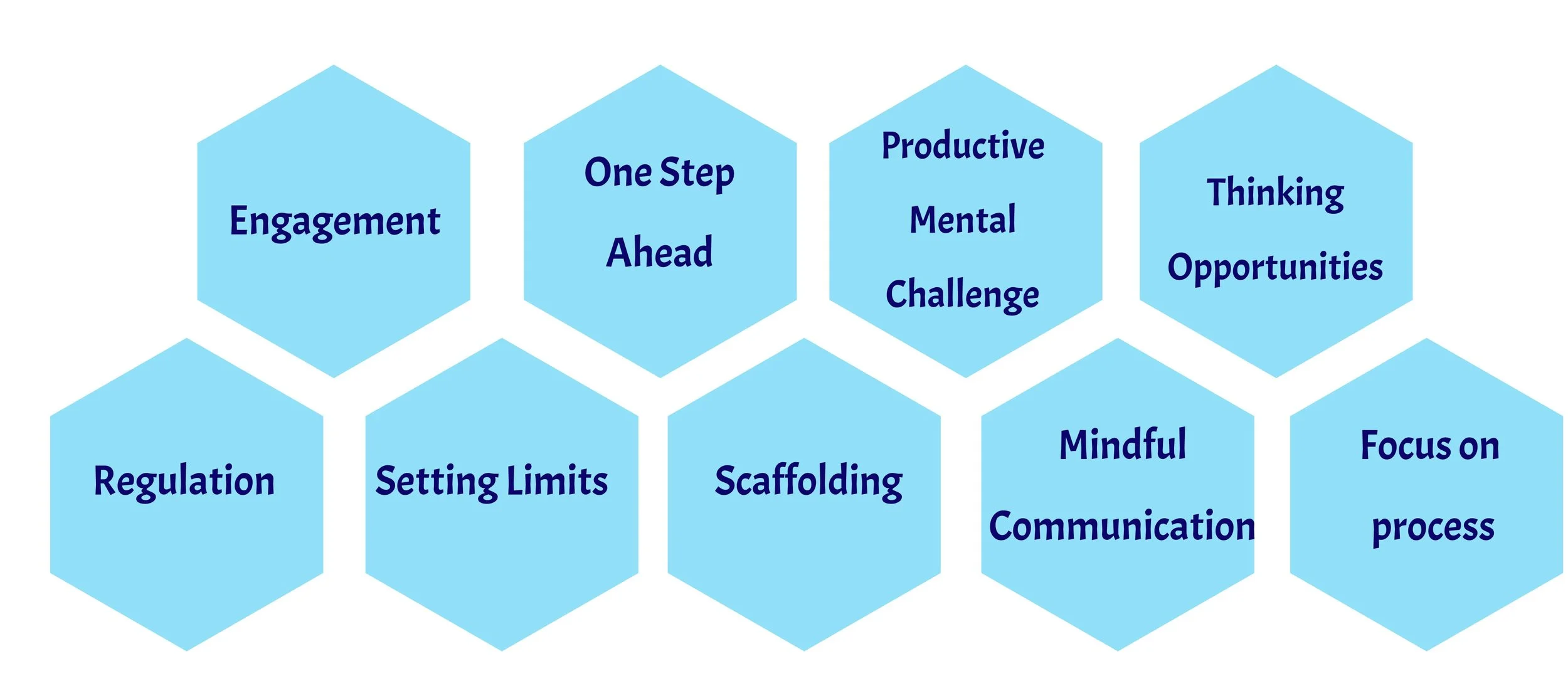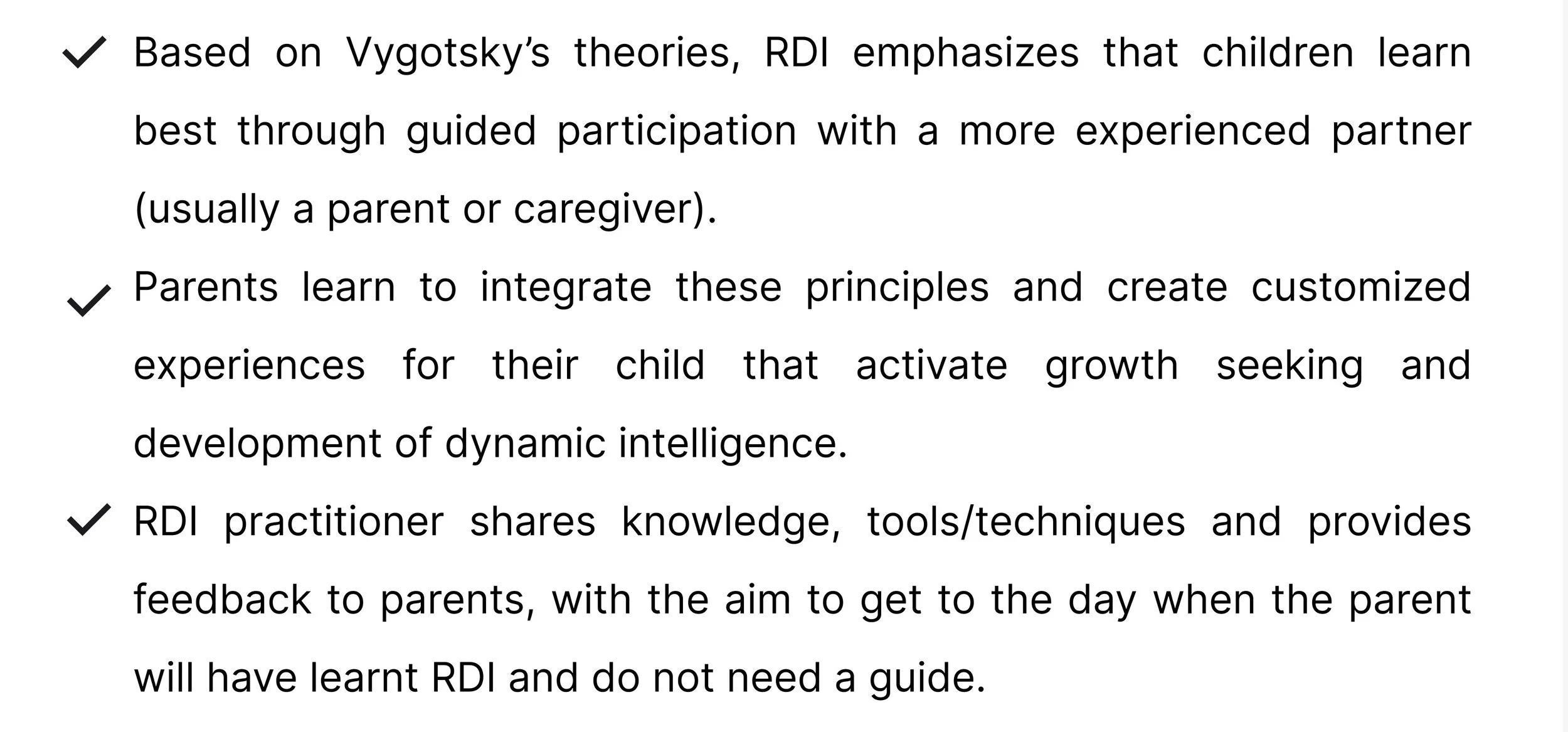
Are you facing behavioural, learning, communication or social challenges with your neurodivergent child/adult?
- Under RDI Family Program, I can help you create and implement a development plan, from which engagement, learning and real-life skills emerge.
Mindfulness and Neural Integration: Daniel Siegel, MD
Neurodiversity refers to the natural variation in how humans think, learn, and process information. It encompasses a range of neurological differences, including autism, ADHD, and others, highlighting that these differences are a normal part of human diversity. This also means that neurodivergent persons learn differently. While our society has made some progress in improving our understanding of neurodivergence, there is still a long way to go.
As parents, the journey starts with going door to door for all kinds of therapies/interventions - often these become mechanical and it does not seem to come together. We are all familiar with challenges such as resistance to learning, aggression, anxiety, difficulty in communication, difficulty in forming relationships and so on. Sometimes changes in their lives throw them off track. Often behaviours become a major cause of family stress, without us realising that behaviour is only a symptom of some underlying cause. This is not to say that these interventions are not needed, but there seems to be a missing link.
Research has shown that a strong healthy constructive connect between a parent and a child, goes a long way in building a solid foundation of ability to solve problems, resilience and ability to form relationships. Growing together means understanding that children do not develop in isolation — they grow through relationships that feel safe, responsive, and attuned. This is the foundation of all learning on which life skills, academics and social relationships build on. After all, a neurotypical kid does not start going to school for few years after birth but the kid has already learnt few critical things to navigate life. Where does that learning come from - it’s the family. Unfortunately, with our neurodiverse kids, that learning connection got lost very early due to neurological factors without us realizing, for nobody’s fault.
A child spends majority of his/her time with or around parents and therefore naturally parents are the most important guides. Therefore, if we parents can provide them with appropriate learning experiences, it can go a long way in enhancing child’s growth. After all, parents are likely to know their child better than any teacher. Also, it is critical that our already stretched mental, emotional, and physical resources are not further put to the test.
This is where RDI came to my help and many other families around the world.
What is RDI®?
RDI is a parent coaching program, where parents learn to create and implement a development plan for their child - a plan that focusses on developing developing capacity for dynamic thinking, which opens the door to the possibility of a greater quality of life that includes: reciprocal communication, genuine friendships, confident, independent living, prolonged relationships and meaningful employment.
RDI targets the root causes of symptoms such as behaviours and does not simply seek to mask the condition with scripted conversations or rehearsed behaviours. RDI is an intervention of gradually and consciously re-building the foundation, that has been affected by neurological factors, helping build neural connectivity.
Origin of RDI
RDI was developed by Dr Steven Gutstein in the USA in 1990s. He is a psychologist, holds a PhD in Clinical Psychology from Case Western Reserve University. He has served on the faculty of Baylor Medical School and The University of Texas Medical School.
Dr Gutstein studied the means by which typical children become competent in the world of emotional relationships and found that early parent-infant interaction predicted later abilities in language, thinking and social development.
He spent thousands of hours painstakingly deconstructing and analyzing the underlying elements of scores of complex mental processes documented in the developmental psychology research literature and developed RDI.
RDI has benefitted families around the world in 31 countries so far. Majority of RDI consultants started off as parents - their positive experiences with RDI prompted them to take up the professional certification to help other parents.

RDI Program Principles
The RDI Process
-
Sessions
At mutually agreed date and time, typically lasting 45-60 minutes each either online or in person. Parents and the consultant will review the work assigned in the previous session, learn new concepts and prepare for next assignment.
-
Assignments
Clear, systematic assignments, tailored to the daily realities of the family. Parents will go back with specific action points to be submitted prior to next session.
-
Assessment (RDA)
Sessions where the RDI proprietary assessment will be conducted, to enable the consultant to come up with a plan.
-
Between sessions
Parents use the online global RDI learning system for continuity and as repository, can also approach consultant with queries.
It takes time to do RDI, but RDI saves time!
My role as a consultant
Assessment of the family and come up with a development plan, while not being overwhelming on your family resources
Transfer my knowledge and abilities to you over a series of clear objectives so you become fully independent in applying the RDI tools
Construct clear, systematic assignments, tailored to the daily realities of your family
Ensure that you have appropriate understanding of how you are expected to work with your child between our meetings
Ethics and Responsibility
All sessions and work submissions by families are treated with strict confidentiality and consent.
-
Yes, RDI helps us to identify and resolve the root causes of behaviour, instead of superficially working on them.
-
RDI focuses on developing intrinsic motivation, dynamic thinking and problem solving abilities in a structured and calibrated manner. RDI also helps in understanding underlying causes of behaviours, if any, and helps address them accordingly - not simply seek to mask the condition with scripted conversations or rehearsed behaviours.
-
Self regulation: ability to take in new information, absorb it and making sense of it.
Joint attention: ability to read and process nonverbal cues, results in an understanding of the mental state of another person.
Co-regulation: ability to dynamically alter actions with respect to the ongoing and anticipated actions of partners.
Episodic Memory: a representation of an event, strongly anchored by an emotional appraisal
Empathy: emotional awareness of impact of own actions on others
RDI is about remediating the core deficits of autism, which are pre-requisites for independent living, in a step by step process of coaching parents/caregivers and incorporating RDI in our daily lives.
-
It implies mental resources needed to prepare for, engage with, adapt to, and learn from uncertain situations, that aid us to function effectively.
Whereas static intelligence is when we expect the same result every time a set of actions is completed, or expect a situation to be managed by following a certain procedure.
RDI builds dynamic intelligence, not by "getting" a child to do something but by coaching parents how to create customized experiences that focus on activating growth seeking, building intrinsic motivation and giving the child mental & emotional abilities that we all count on to navigate life.
-
Children with neurodivergent challenges often have a difficulty making sense of patterns in the environment. Many situations in which child may appear to be deliberately misbehaving or being manipulative, it is likely that the child is not able to regulate and is experiencing anxiety.
Regulation, as used in RDI, refers to a state of relatively low-stress regularity within a dynamic system. It's the experiential patterns and emotional responses that are emphasized in RDI regulatory patterns.
-
Co-regulation is the process by which individuals dynamically alter their actions with respect to the ongoing and anticipated actions of their partners.
It is different from compliance, which is doing an action without having to think about it (being trained to do something in a very precise manner and automatically).
RDI helps build co-regulation by training yourself to engage in regulatory patterns and learning to analyze the interaction.
-
The type of communication that would enhance learning relationship between a parent and his/her child to increase experience sharing, build resilience, focus on thinking process and not just ‘doing’.
Different to imperative language: making requests, asking questions and making demands, used for instrumental purposes. It limits opportunities for problem solving and empowerment.
RDI is about taking a long-term perspective and remediating the core deficits of autism. RDI helps in setting the foundations of mindful communication in place through coaching and practise.
-
A growing body of research underscores the importance of early development and relationship-based guidance for autistic individuals. Read the full research overview https://www.rdiconnect.com/transforming-the-well-being-of-persons-with-autism/








